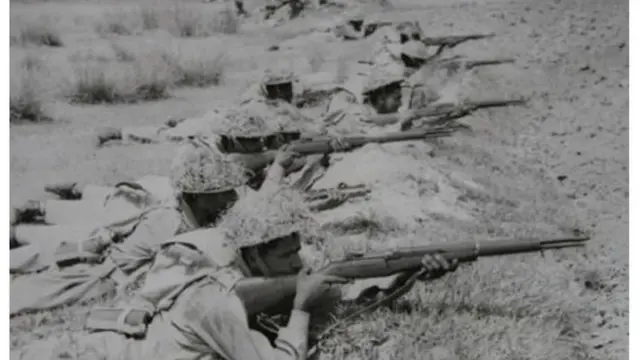
The bitter history of tension between India and Pakistan dates back to the partition and continues to this day.
Every few years, a new wave of cross-border skirmishes, diplomatic clashes, and heightened media-driven war hysteria throws the people—especially in Pakistan—into a state of mental turmoil. While physical violence remains a terrifying reality, the emotional and psychological toll of this prolonged hostility is often overlooked. This blog focuses on that invisible war: the one waged inside people's minds.
For young Pakistanis in particular, life is shaped by a constant sense of uncertainty. The looming threat of war raises questions not just about national security but also about mental stability. When a nation feels like conflict could erupt at any moment, daily life becomes drenched in fear. Children heading to school, professionals in offices, and homemakers all feel an underlying sense of dread—anxiety that lingers like an unwelcome guest.
Media—both electronic and social—plays a significant role in fueling this fear. In emotionally charged moments, headlines are plastered with war chants, nationalistic songs blare across platforms, and the demonization of the "enemy" stokes anger, insecurity, and helplessness among the public.
Conflict doesn't just threaten borders; it weakens the economy too. Inflation surges, businesses slow down, and uncertainty spreads. This economic strain creates not only financial but deep psychological stress. For students trying to build their futures, a constant diet of war talk and uncertainty disrupts dreams and long-term planning. Many are left with no choice but to consider unrealistic or impulsive life decisions—including migration.
Full-blown warfare means increased defense spending and cuts to essential sectors like healthcare, education, and employment—areas that directly affect the quality of people’s lives and mental well-being.
Living under constant tension and fear transforms a person’s psyche. Day-to-day life feels like waiting for disaster. This tension begins to erode personalities, relationships, and work performance. Some individuals begin to isolate themselves; others develop aggression or fall into harmful thought patterns that could lead to serious mental health issues.
Clinical psychologist Dr. Khadija highlights how conflict between nuclear powers like India and Pakistan doesn't remain confined to borderlines—it infiltrates minds. Media rhetoric, political statements, and the echo chamber of social media create a blend of fear, anger, and unrest that seeps into both conscious and unconscious thought.
People—especially those in border areas or with loved ones in the military—develop symptoms associated with PTSD (Post-Traumatic Stress Disorder) or Generalized Anxiety Disorder. These include sleeplessness, irritability, hopelessness, and an overwhelming sense of vulnerability.
For the youth constantly exposed to war-themed content online, the effects are even more corrosive. They’re torn between feelings of national pride and an existential fear of annihilation. This emotional dissonance quietly chips away at their peace of mind.
Dr. Khadija warns that war is not just about ammunition—it is also a psychological assault. Without proper mental health support, especially for the youth, we risk nurturing a generation that appears outwardly functional but is internally shattered. Peace, she insists, isn’t just a political slogan; it’s the only true hope for mental stability.
What’s needed now is a collective shift in narrative—from war cries to peace-building. Governments, media houses, educators, and religious leaders must unite to strengthen public resilience. Social media users must also behave responsibly, prioritizing facts over emotions.
A potential war between India and Pakistan is more than a political or military issue—it’s a looming humanitarian crisis. With so many challenges already confronting Pakistani society, any added strain could have devastating psychological consequences. It’s time we, as a nation, stop romanticizing war and start investing in peace, stability, and the emotional well-being of our people.